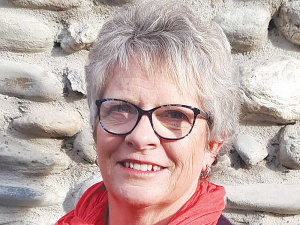Applications Open for 2026 NZI Rural Women Business Awards
Applications are now open for the 2026 NZI Rural Women Business Awards, set to be held at Parliament on 23 July.
 RWNZ president Gill Naylor is concerned by the adverse impacts the Government’s emissions plan may have on primary producers.
RWNZ president Gill Naylor is concerned by the adverse impacts the Government’s emissions plan may have on primary producers.
Rural Women New Zealand (RWNZ) says they have major concerns for the wellbeing of rural communities after the release of the Government’s emissions pricing plan.
The proposed plan, announced earlier this month, will see farm emissions priced at the farm-level, but deviates from the industry recommendations in key aspects. It is currently up for consultation.
While Prime Minister Jacinda Ardern describes the pricing plan as a ‘pragmatic’ approach, RWNZ national president Gill Naylor says her organisation is concerned by the adverse impacts it may have on primary producers, particularly if they aren’t supported while they adapt their practices.
“We are also concerned about the flow-on effects on small towns and regional centres that depend on our primary producers to remain viable and vibrant communities and… the health and wellbeing of our farmers and their families is a concern where they are worrying about the viability of their businesses, and where the place that they call home might be on the line,” Naylor told Rural News.
There is “no doubt”, Naylor says, that both the proposals made in the Government’s consultation document and the He Waka Eke Noa Primary Sector Climate Change Partnership will have an impact on rural communities, including the towns and regional centres that service them.
She says RWNZ will be canvassing its membership for in-depth reactions, “however, initially [we] would like to see support put in place for the opportunities to adapt to be thoroughly explored and communicated widely”.
Naylor says the Government needs to do more work to strengthen and support rural communities.
They can do this, she says, “by listening and understanding the concerns of… primary producers and rural communities and working with them to codesign solutions”.
Those solutions include funding for the provision of farm advisors, education and awareness programs, appropriate research, and increased access to health and wellbeing services in rural communities, Naylor says.
“Our members care for our land, our people and rural communities and we acknowledge the need to adapt, however, we would like to see more work on empowering rural communities through the provision of resources to effect positive change,” she says.
Naylor says RWNZ will provide feedback on the consultation document, with a particular focus on how the Government can mitigate adverse impacts on the health and wellbeing of the wider rural community.
“RWNZ will also be calling for more resources so that all rural communities can find and make the most of the opportunities afforded them through fit-for-purpose solutions to reduce emissions,” she says.
Consultation on the emissions plan closes on 18 November, with final proposals set to go to Ministers for approval in early 2023.
A buoyant farm economy should make for a successful 2026 Southern Field Days, says chairman Steve Henderson.
OPINION: November 7 has been set by Christopher Luxon as ‘E day’ – election day.
The strong wool market has improved in the past six months, despite drops in production over recent years.
On January 5th at Te Pa Station, the World Sheep Shearing Records saw a new nine-hour strong wool ewes shearing record set by Simon Goss.
Recently awarded in the New Years Honours List for Services to Agriculture and Governance, well known dairy farmer Lloyd Downing has become an Officer of the New Zealand Order of Merit (ONZM).
International trade expert Stephen Jacobi says Winston Peters' objections to the Indian free trade deal are "ridiculous".

OPINION: Your old mate has long dismissed the Greens as wooden bicycle enthusiasts with their heads in the clouds, but…
OPINION: After seven years of Adrian Orr’s antics as Reserve Bank NZ governor, the priority of his successor, Anna Breman,…